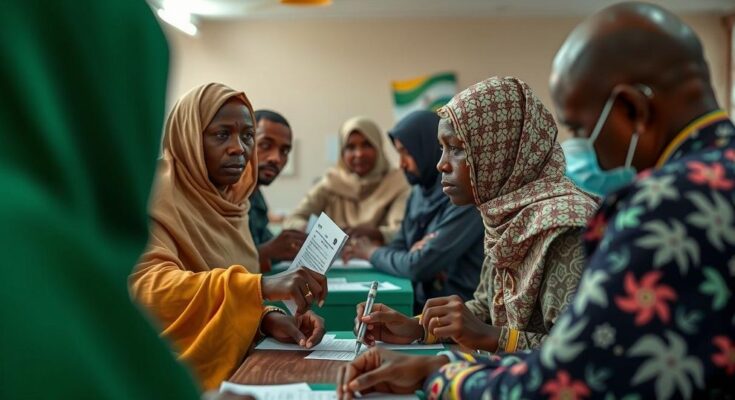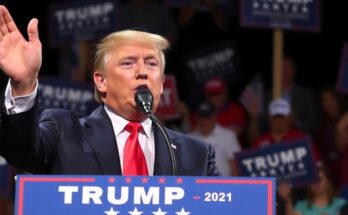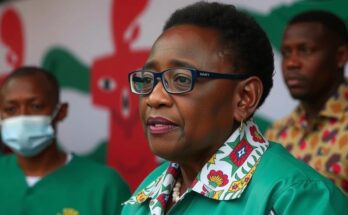Voting in Somaliland’s presidential election began on November 13, 2024, following a two-year delay. President Muse Bihi Abdi seeks re-election against opposition candidates advocating various reforms. Approximately 1 million voters are expected to participate at over 2,000 polling sites, reflecting a quest for economic improvement amid regional political tensions.
On November 13, 2024, voting commenced in Somaliland, marking a significant presidential election delayed for two years amid escalating political tensions in the Horn of Africa. Polls opened to over one million voters at more than 2,000 polling stations, overseen by 28 international observers. Ruling President Muse Bihi Abdi, representing the Kulmiye Party, seeks re-election after seven years while Abdirahman Mohamed Abdullahi of the Waddani Party campaigns for democratic reforms. Faisal Ali Warabe from the Justice and Welfare Party advocates for a national unity government. Somaliland declared its independence from Somalia in 1991 during a period of conflict, establishing its own governance structure, currency, and security despite lacking global recognition. This election is critical as it demonstrates the region’s commitment to stability and democracy, contrasting with ongoing difficulties faced by Somalia. The economic challenges cited by the government contributed to the prior election delay, and recent agreements with Ethiopia regarding access to the Indian Ocean have intensified tensions with Somalia, which views such arrangements as a threat to its territorial integrity. This upcoming election, being the fourth presidential election in Somaliland, remains under scrutiny. The peaceful conduct of the electoral process is paramount for the region’s continued stability, despite concerns over the integrity of electoral democracy and the implications of the political landscape in the surrounding areas. In conclusion, the Somaliland presidential election is a crucial event that could reshape the region’s political landscape. With significant voter participation anticipated, it reflects the public’s desire for economic improvement and political stability as they navigate long-standing issues related to governance and international recognition.
The election in Somaliland is significant, not only as a test of its democratic process but also as a response to the political climate of the Horn of Africa. Somaliland has governed itself since declaring independence from Somalia in 1991, creating a unique political identity amidst international non-recognition. The region has established a relatively stable environment compared to the continuous conflicts plaguing Somalia. However, the tensions surrounding its political agreements, especially with Ethiopia, introduce additional challenges as it seeks robust international relations while maintaining its integrity.
The presidential election in Somaliland, set for November 13, 2024, stands as a pivotal moment for its political future. With a clear distinction among candidates and an engaged electorate, the election is not only an opportunity for democratic expression but also reflects broader desires for economic stability and societal progress in the region. The outcome of this election will be integral in defining Somaliland’s trajectory in a politically charged environment.
Original Source: apnews.com




